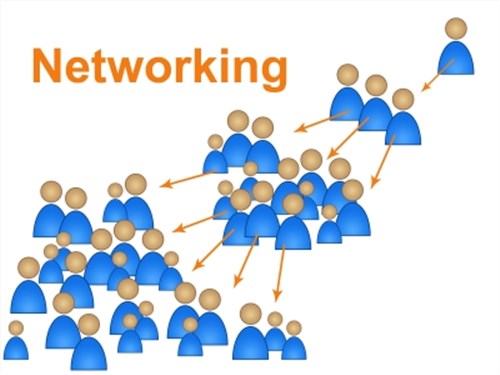
Why Small Business Owners Should Consider CRM
Small business owners are pressed for time and don’t often have money to burn – so who wants to add another acronym to the growing list of high-tech tools they use during the work day. CRM? Who needs it?
Well, if you’re trying to grow your business in earnest – you probably do. Today’s CRM tools are not the complex beasts of yesteryear, but are now streamlined tools that can really help your take your small business to the next level.
Not convinced you should jump into the CRM pool? Here are four reasons why any small business can and should give a customer relation management tool a look.
Understand Where Your Sales Are Coming From
As the name suggests, CRM is fundamentally about customer relations. The job of a CRM system is to help you better relate to your customers. What does that mean? Primarily it means developing a deeper understanding about the source of your revenues. Who are your customers? What traits do they share? Why do they choose to buy from you instead of someone else? And what can you do to encourage potential customers to become buyers?
Many small business owners have a minimal marketing budget to work with, so the blunt tools of large-scale advertising and mass media promotions simply aren’t available. Instead, small business owners need to nurture more targeted approaches to reach customers – both new and existing – and a good CRM system can help you develop a strategy for doing exactly that by helping you figure out the best way to market your wares. Detailed reporting options let you slice and dice the information in your sales funnel in the way that makes the most sense for you.
Streamline Communications
With a solid understanding of who your customers are, now it’s time to communicate with them. Even if you only have, say, a few hundred loyal customers, communicating with each one on an individual basis can be a daunting – and perhaps impossible – task. Another goal of CRM is to streamline that process so you know to whom you need to reach out, when to contact them, and how.
The goal here isn’t just to increase and improve communications with customers, but ultimately to increase sales as well. A CRM package will guide you on when to send messages, what the content of those messages should be, and even when promotions might be in order. CRM will help you classify customers by how important they are to your business as revenue sources, so you’ll know whether someone is due for a big discount, or whether some gentle encouragement might be the right way to bring a formerly big shopper back into the fold.
Automate Simple Activities
Does your business send out a weekly or monthly reminder about new products, promotions, or seasonal information? CRM software can take care of this grunt work for you, scheduling messages complete with personalized components and all the opt-out tools you need to remain compliant with anti-spam rules. Auto-responders can also help manage your inbox, letting potential leads know when you’ll get back to them or providing more information about your business, and incoming leads are automatically added to your contact database, saving you time and energy.
The idea with all of this is to offload as many menial tasks as possible, so you can spend less time on mundane (but important) jobs and more time on the more lucrative aspects of running your business.

Engage with Social Networks
The rise of social media has made life a lot more complicated for many small business owners. Now instead of just monitoring the telephone voice mail and your email inbox, you need to juggle Facebook, Twitter, LinkedIn, and more. It’s not uncommon for some businesses to spend two or three hours per day just managing social media accounts.
Social CRM services can help by integrating all of your customers’ social media accounts into a single system, making it much easier to keep tabs on all of these disparate networks. If you want to reach out to customers on one network or another, a CRM system can dramatically streamline that process.
Conclusions
CRM may sound like a scary acronym, but it doesn’t have to be an expensive or overwhelming undertaking, and many CRM systems let you ease gently into customer relation management without forcing you to upend the way you do business.
You might start with some basic analytics that help you understand your customer base, segue into a few automated email campaigns, then expand your CRM strategy by folding in social media integration and project management. Before you know it, you’ll probably wonder how your business worked without having CRM in your toolbox.
At Insightly, we offer a CRM used by small and mid-sized businesses from a huge variety of verticals. Learn about all of Insightly’s features and plans on our pricing page or sign up for a free trial.

About the Author: Christopher Null is an award-winning business and technology journalist. His work frequently appears on Wired, PC World, and TechBeacon. Follow him on Twitter @christophernull.



